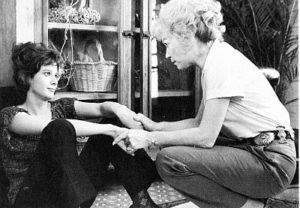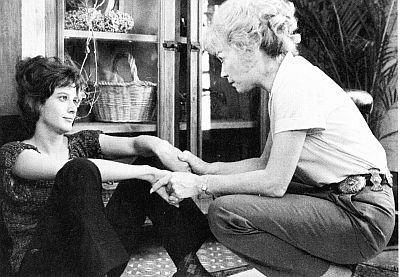Terms of endearment:
Main Sights of Terms of Endearment: Dinner Gift Ideas Wedding Gifts Favorite Pasttimes Favorite Pets British People Holidays Greeting Manners How Is Conkers Game Played? How is Family Life In Britain? How is Typical Teenager Life? Popular British Sayings & Idioms Popular Games Kids Play Pub Culture in England Subjects to Talk During a Meal Table Manners in the UK Types of Shops In Britain Typical Birthday Celebrations Typical Day and Weekend for a Child in Britain What Is a Pub? England Taboos Year-round special days, events and holidays in Britain January Special Days & Events February Holidays March Holidays April Events

There has been a film with the name “Terms of endearment”. In case you are not familiar with the meaning of this phrase, it is “names we may call you in Britain”.
In the UK we are, in many ways less formal in language than the US. It’s unusual for younger people to refer to adults or people older than themselves as ‘Sir’ or ‘Madam/Ma’am) In fact if you use these terms you are likely to be thought of making fun of the person you are addressing.
Terms of Endearment
If you don’t know the adult you’re speaking to well enough then using their full name is usually the best solution and the one least likely to offend.
Hi, ‘Mr. Gibbens’ would you mind if I used your toilet? Thank you for dinner ‘Mrs. Braybrooke’ it was very nice.
In many cases you will be told that you can call the adult by their first name, in this case, it is perfectly polite and acceptable to do so.
Many terms depend on your age in comparison to the person talking to you as well as the geographical location.
Some regional variations that are specific to certain areas of the UK are below.
Generalised terms
Mate – Meaning friend – ‘Cheers mate’
Bloke – Meaning man – ‘He’s a good bloke’
Babe – Female – ‘Alright babe’ sometimes used for men by their girlfriend/wife
Terms In Scotland
Hen – women in Scotland are often addressed as hen
Doll – Scottish men often use this when they are talking to their girlfriend/wife
Lass – Female – She’s a sweet lass
Lassie – Female – another form of Lass
Terms In Wales
Boyo – if you’re a man – ‘That’s right boyo’
Flower – Referring to a woman
Petal – Referring to a woman
Terms used in Northern Ireland
Blade – Girl – ‘Look at the blade’ – ‘Look at that girl’ or ‘Our blade’ – ‘My sister/cousin’
In the North East of England
Dear – Male or female
Darling – Generally female but sometimes male
Love – Male or female
Petal – Generally female but sometimes male
Flower – Female
In the North West of England
Dear – Male or female
Darling – Generally female but sometimes male
Love – Male or female
Common terms used In the Midlands
I duck – Generally referring to a female but also sometimes used for men, in this case, the ‘me’ means ‘my’
Duck – Generally referring to a female but also sometimes used for men
Bab – likely to be based on baby, you may be happy to hear this in the Midlands. If you hear it in Yorkshire it might be worth not smiling back sweetly as it can be used as slang for poo!
Cocker – in some parts of northern England, this can be used as a substitute for a mate. In other areas, it is considered rude.
In the South West of England
My lover – not to be taken literally! Referring to men or women depending on the speaker, but again mainly meaning friend.
London and the South East
Babe – referring to women – alright babe
Guvna – An older or more senior man might be referred to as Guvna or Guv meaning sir
Guv – A shortened form of Guvna
Son – Referring to a younger man
Treacle – A friendly reference to a female friend, although you may be called this by people working in shops or other businesses
Counties in England – Information on all English counties with places to see and things to do in those counties. Tourist attractions in major towns, wedding venues, places for afternoon tea and caravans.
More Info On- How is Conkers game played, Daily life in Britain, Cornwall

